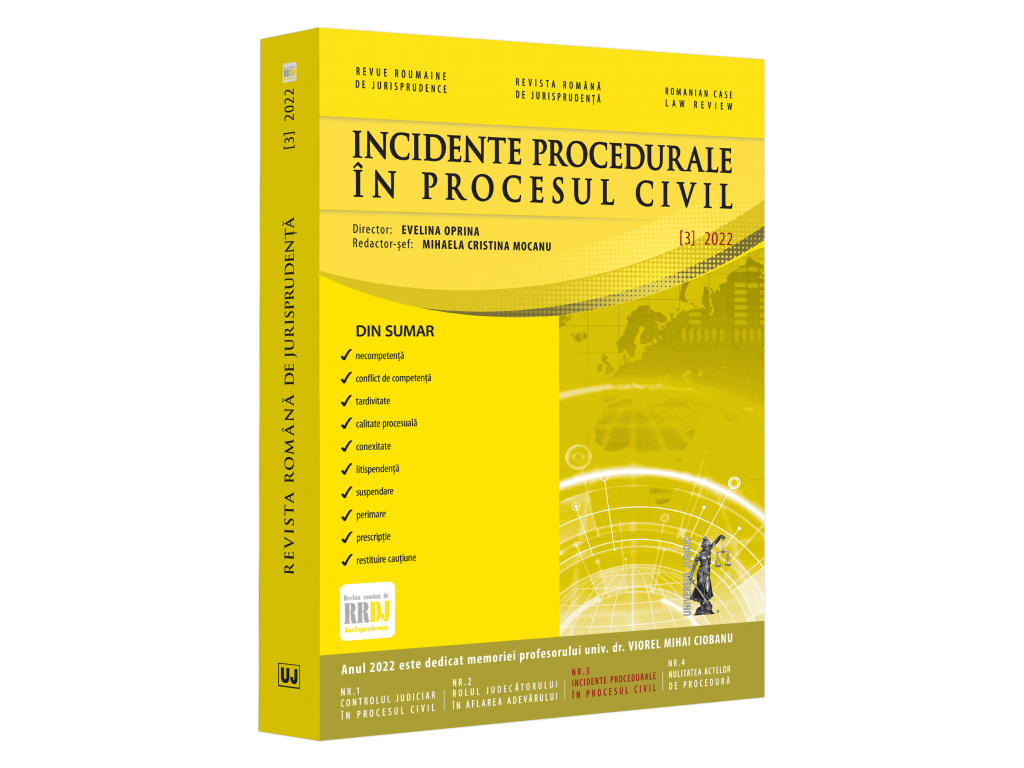The objection raised by the parties in their defence is raised in the absence of the parties from the hearing. The adversarial principle and the principle of orality. The written submissions and the case being reopened.
JURISPRUDENȚĂ COMENTATĂ ȘI ADNOTATĂ
Abstract
In the context of the introduction, by the provisions of the New Code of Civil Procedure, of the written stage of the trial, a stage intended to make the resolution of civil disputes more dynamic and efficient, the communication between the parties of their procedural position in written form cannot be ignored in the resolution of the dispute, i.e. the possibility for the parties to contest in writing the position of the opposing party by way of a statement of defence (in the case of the defendant) or by way of an answer to the statement of defence (in the case of the plaintiff). The practical importance of this written exchange of "replies" becomes obvious when the adversarial and oral nature of the proceedings is materialised by the absence from the hearing of the parties who requested the default judgment.
The written pleadings must not represent more than a summary and systematisation of the procedural position of the parties expressed during the course of the dispute, otherwise the provisions of Article 394 para. (3) of the Civil Procedure Code and the sanction of failure to take into account.
Reopening the case is a faculty of the court which must be subordinated exclusively to the desire to find the judicial truth, not to safeguard the interests of an insufficiently diligent party who failed to use its arguments, defences or legal instruments lato sensu at the appropriate procedural moment.
The plea of extinctive the limitation term, which in the light of the new Civil Code has become a relative plea, cannot be invoked ex officio by the court, but once it has been invoked within the legal time limit by the interested party, the court is entitled to take all the steps necessary for the correct application of the rules on extinctive the limitation term, including the rules on the calculation of the limitation term. However, in calculating the limitation term, the court cannot disregard any periods of stay or interruptions of the term, in so far as they are apparent from the file. Even if they have not been raised by the party concerned, they may be raised by the court of its own motion and must be put to the parties in adversarial proceedings.
Since the effects of the collective agreement also extend to employees who were not represented when it was concluded, there is nothing to prevent them from being required to pay a contribution for the financial support of collective bargaining. However, they cannot become income of the trade union(s) at the level of the establishment, nor can they be payable for periods prior to the date on which the collective agreement takes effect.








